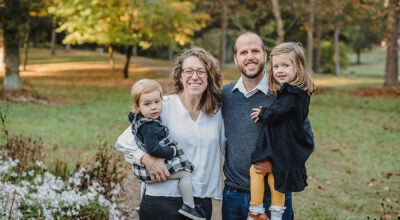Public funds gone, NC court hopefuls ‘dialing for dollars’
Published 12:00 am Monday, September 29, 2014
RALEIGH (AP) — Few candidates for elected office like raising large amounts of campaign money.
The displeasure is acute for North Carolina appellate court hopefuls, who fret about the public’s perception that their bench decisions could be influenced by who donates to their campaigns.
“Independence is the central feature that we look for in our judiciary,” said Superior Court Judge Eric Levinson, a former Court of Appeals judge now running for the state Supreme Court. He said fundraising, if abused, can “be inherently damaging to the judiciary.”
Nearly all Supreme Court and Court of Appeals candidates gladly avoided the money chase by participating in the state’s voluntary public financing program when it began in 2004. Each candidate got a few hundred thousand dollars or so for the general election if they collected a few hundred small-dollar donations in the primary to prove their credibility.
But the legislature, led by Republicans opposed to government involvement in candidate fundraising, repealed the program last year, despite pleas by clean-election advocates and judges to retain it.
Now Levinson and other candidates who once used the defunct program and are on this fall’s ballot say they’re concerned about having to spend more time raising money. At the same time, it may be harder than ever to trumpet their message above the din of a U.S. Senate race that’s already spent $40 million.
“This year, I’m spending a lot of time dialing for dollars,” said Associate Justice Bob Hunter of Morehead City, who ran successfully for Court of Appeals under the program in 2008. Compared with the Senate, he added, “we’re just going to be a kazoo as the band goes by.”
Public financing initiative critics said the money wasn’t enough for candidates to conduct meaningful statewide campaigns. In 2012, each Supreme Court candidate received $240,100 and each Court of Appeals candidate $164,400. Program revenues came from tax checkoffs and annual lawyer fees.
“Unless you spend a half-a-million (dollars) or a third of a million, it’s a waste of time,” said Rep. Paul Stam, R-Wake, an attorney who ran for Court of Appeals in 1998 and 2000.
The amount distributed is a hollow excuse, according to Bert Brandenburg, executive director of Washington-based Justice at Stake, a nonprofit court reform organization. The better solution, he said, would have been to raise amounts to credible levels.
Instead, “life after public financing is grim for judges who have to spend their time raising money from donors instead of talking to voters,” Brandenburg said.
Despite worries about conventional fundraising, the judicial candidates now have the potential to raise money to better counter independent expenditure groups spending in the officially nonpartisan races. Judges can raise $5,000 per election from individuals and PACs, just like non-judicial candidates.
Court of Appeals Judge Sam Ervin IV, who is challenging Hunter this year, knows well about outside money. Two groups — Justice for All NC and the North Carolina Judicial Coalition — ran ads in his 2012 Supreme Court race with Associate Justice Paul Newby. Some promoted Newby’s name and another attacked Ervin. Justice for All NC reported receiving $1.2 million from the Republican State Leadership Committee and sending money to the coalition.
Ervin lost and couldn’t get extra help from the program because a federal court struck down “rescue” funds the program originally offered. He has embarked on vigorous fundraising this year, telling email recipients he needs to raise at least $450,000 to pay for TV ads.
“We know the so-called ‘independent’ money will be coming again! Millions of it!” Ervin wrote.
There’s no confirmation yet that super PACs are running ads this fall. Justice for All NC did spend $900,000 in the May primary, running an ad attacking Associate Justice Robin Hudson. She faces Levinson in November.
Hudson, who ran successfully in 2006 under the public financing program, said she had to focus this summer on refilling campaign coffers after spending to counter the Justice for All NC ad.
Judicial candidates who qualified for public financing “didn’t have to think about money again,” Hudson said, “but that’s certainly not the case now.”





